
Some 400 years ago in the Austrian Alps, a crew of miners dawdled outside their work site perched between a jagged, snowcapped peak and a sparkling lake. They savored the sunlight and pine-scented breeze—the last fresh air they’d inhale for hours—and then entered a tunnel cut horizontally into the mountainside. After a quarter-mile walk, lit by oil lamps, the workers reached the tunnel’s end and resumed burrowing through sheer rock, searching for salt deposits. They were opening a new salt mine at the Hapsburg emperor’s request.
They hammered and chiseled, inching farther into the salt mountain above the town of Hallstatt. Every so often, they lit and doused a small fire, making the rock face brittle and easier to fracture. Finding more salt was imperative. The Hapsburgs used the valuable commodity to finance their banquets, palaces, and wars. As one of Europe’s richest salt sources, Hallstatt “was the treasure chest of the Hapsburg monarchy,” says Kerstin Kowarik, an archaeologist at Natural History Museum Vienna.
But the workers found no glittering salt at the end of this tunnel. Instead, they struck a wall of hardened mud and waste left by earlier miners—pickax handles, burned splits of wood, frayed rope, and salt pieces too puny to collect. They’d have to start a new tunnel elsewhere on the mountain. Someone had already gutted this sector of its salt.
هذه القصة مأخوذة من طبعة January/February 2022 من Archaeology.
ابدأ النسخة التجريبية المجانية من Magzter GOLD لمدة 7 أيام للوصول إلى آلاف القصص المتميزة المنسقة وأكثر من 9,000 مجلة وصحيفة.
بالفعل مشترك ? تسجيل الدخول
هذه القصة مأخوذة من طبعة January/February 2022 من Archaeology.
ابدأ النسخة التجريبية المجانية من Magzter GOLD لمدة 7 أيام للوصول إلى آلاف القصص المتميزة المنسقة وأكثر من 9,000 مجلة وصحيفة.
بالفعل مشترك? تسجيل الدخول
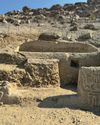
ORIGINS OF PERUVIAN RELIGION
While investigating looters' holes at the site of La Otra Banda in northern Peru's Zaña Valley, archaeologist Luis A. Muro Ynoñán of the Field Museum and the Pontifical Catholic University of Peru spotted carved blocks around seven feet below the surface.
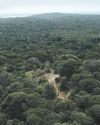
ISLAND OF FREEDOM
Many of the enslaved Africans sent to Brazil beginning in 1549 were from what is now Angola, where one of the most widely spoken languages was Kimbundu.
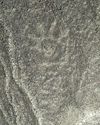
NAZCA GHOST GLYPHS
From the 1940s to the early 2000s, geoglyphs were discovered in the Nazca Desert of southern Peru depicting animals, humans, and other figures at the rate of 1.5 per year.

COLONIAL COMPANIONS
The ancestry of dogs in seventeenth-century Jamestown offers a window into social dynamics between Indigenous people and early colonists.
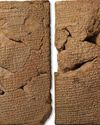
BAD MOON RISING
The British Museum houses around 130,000 clay tablets from ancient Mesopotamia written in cuneiform script between 3200 B.C. and the first century A.D.
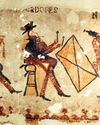
DANCING DAYS OF THE MAYA
In the mountains of Guatemala, murals depict elaborate performances combining Catholic and Indigenous traditions
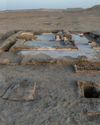
LOST GREEK TRAGEDIES REVIVED
How a scholar discovered passages from a great Athenian playwright on a discarded papyrus

Medieval England's Coveted Cargo
Archaeologists dive on a ship laden with marble bound for the kingdom's grandest cathedrals
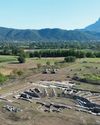
Unearthing a Forgotten Roman Town
A stretch of Italian farmland concealed one of the small cities that powered the empire
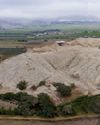
TOP 10 DISCOVERIES OF 2024
ARCHAEOLOGY magazine reveals the year's most exciting finds